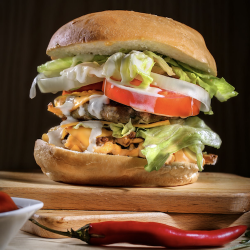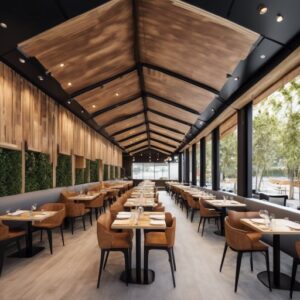In the ever-evolving landscape of the restaurant industry, staying ahead often means embracing innovative solutions to streamline processes, reduce costs, and enhance efficiency. One such solution gaining momentum is prefab construction. Prefabricated buildings, once associated with temporary structures, have now emerged as a viable option for permanent establishments, including restaurants. In this article, we delve into six compelling reasons why restaurants should consider prefab construction for their next venture.
Speed of Construction
Traditional construction methods often entail lengthy timelines, with projects taking months or even years to complete. In contrast, prefab construction offers a significantly faster alternative. Prefabricated components are manufactured off-site in controlled environments while site preparation occurs simultaneously. Once ready, these components are transported to the site and assembled, reducing construction time by up to 50% compared to traditional methods. For restaurants aiming to capitalize on prime locations or seasonal demand, the accelerated construction timeline of prefab buildings can be a game-changer, allowing them to open their doors to customers sooner and start generating revenue faster.
Cost Efficiency
Cost considerations are paramount in any business venture, and restaurants are no exception. Prefab construction presents a cost-efficient solution for restaurateurs looking to optimize their budgets without compromising quality. By streamlining the construction process and minimizing on-site labor requirements, prefab buildings can significantly reduce overall project costs. Moreover, the controlled manufacturing environment of prefabricated components minimizes material waste and ensures consistent quality, further contributing to cost savings. For restaurants operating on tight margins or embarking on expansion projects, the cost efficiency of prefab construction can make all the difference in achieving profitability.
Design Flexibility
Contrary to common misconceptions, prefab construction does not limit design possibilities; rather, it offers a wide range of design options to suit diverse aesthetic preferences and functional requirements. Modern prefab technologies allow for customization at every stage, from architectural design to interior finishes. Whether aspiring for a sleek contemporary look or a rustic charm, restaurants can collaborate with prefab manufacturers and designers to bring their vision to life. Additionally, the modular nature of prefab buildings enables easy expansion or reconfiguration in response to changing needs, providing restaurants with the flexibility to adapt to evolving market trends and customer demands.
Sustainability
In an era marked by growing environmental consciousness, sustainability has become a key consideration for businesses across industries, including hospitality. Prefab construction aligns with sustainability objectives on multiple fronts. Firstly, the controlled manufacturing processes of prefab components result in reduced material waste and greater resource efficiency compared to traditional construction methods. Secondly, prefabricated buildings are designed for energy efficiency, incorporating features such as insulation, high-performance windows, and renewable energy systems to minimize environmental impact and operational costs. By opting for prefab construction, restaurants can demonstrate their commitment to sustainability while reaping the long-term benefits of reduced energy consumption and operating expenses.
Quality Assurance
Quality control is essential in ensuring the longevity and safety of restaurant facilities. Prefab construction offers inherent advantages in terms of quality assurance. The manufacturing of prefabricated components in factory settings allows for rigorous quality control measures, including standardized production processes and inspections. As a result, prefab buildings often exhibit higher levels of structural integrity and consistency compared to their conventionally built counterparts. Additionally, prefab manufacturers adhere to strict building codes and regulations, ensuring compliance with safety standards and mitigating potential risks during construction. For restaurants prioritizing reliability and durability, the quality assurance provided by prefab construction can instill confidence in their investment.
Minimal Disruption
Restaurant operations are highly sensitive to disruptions, as downtime can translate to lost revenue and dissatisfied customers. Prefab construction minimizes on-site disruptions through its efficient and streamlined assembly process. Since the majority of construction activities occur off-site, there is minimal noise, dust, and traffic congestion at the restaurant location. As a result, neighboring businesses and residents are less likely to be inconvenienced, fostering positive relationships within the community. Moreover, the reduced construction timeline means that restaurants can reopen or commence operations sooner, minimizing the duration of potential revenue loss. By prioritizing minimal disruption, prefab construction enables restaurants to maintain business continuity and uphold customer satisfaction.
Conclusion
In the competitive landscape of the restaurant industry, embracing innovation is essential for staying ahead of the curve. Prefab construction offers a myriad of benefits that align with the evolving needs and priorities of modern restaurateurs. From expedited construction timelines and cost efficiency to design flexibility and sustainability, prefab buildings present a compelling proposition for restaurants seeking to optimize their operations and enhance their competitive edge. By considering the advantages outlined in this article, restaurant owners and operators can make informed decisions that pave the way for success in an ever-changing market.


